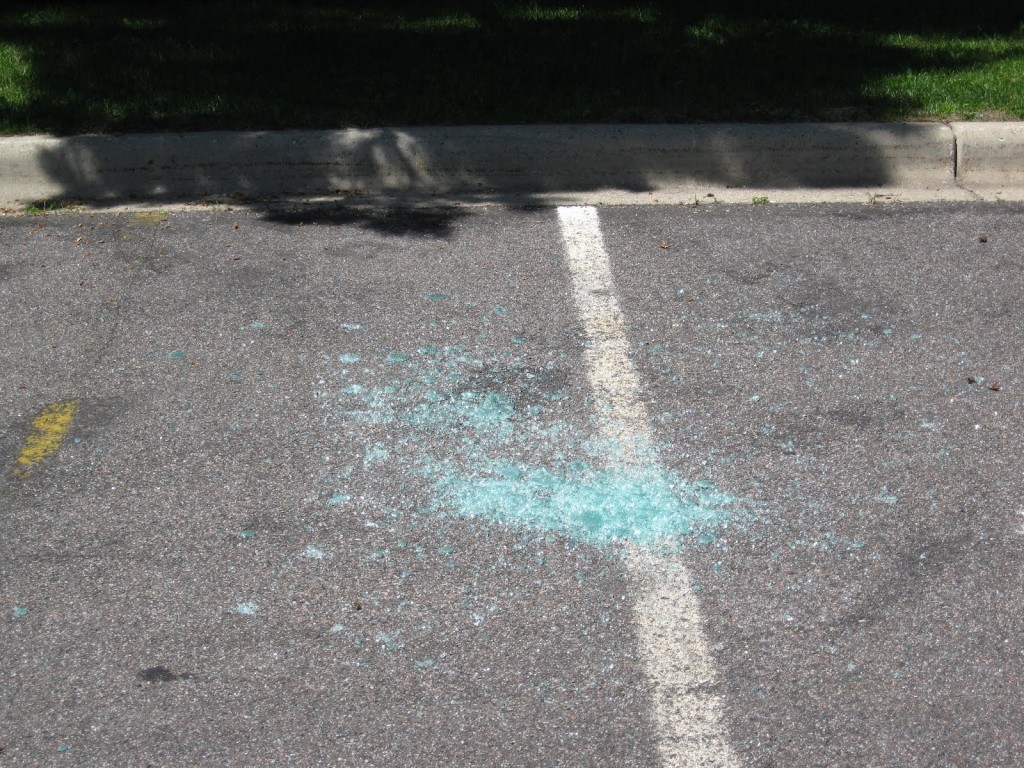Want to Raise Kids Who Give a Damn? Start with a Simple Box of Crayons
The first grade boy looked at the crayons scattered under the table. Then he looked at me. “They’re not mine,” he said.
And technically he was right. They came from a communal bin. That’s the way schools want it. Everything belongs to everybody, and nothing belongs to anyone.
I told him I didn’t care who the crayons belonged to. Pick them up anyway.
And he did.
Maybe he resented the task for the same reason public employees often treat the people they serve as a nuisance.
The phenomenon isn’t new to me, or to you, probably.
When my husband and I arrived at a nearby nature park on Saturday morning, we saw broken windshield glass in two parking spaces. A whole section of windshield lay in a pile. It appeared that a couple of cars had been broken into. 
This morning, when we went back for another hike, the glass was still there. So on the way home we stopped at the police station to report it.
Three tall windows separated the station lobby from the inner office, all with small openings at the bottom for transactions. I approached the only window that was not closed. After all, it’s Sunday.
A woman sat at a desk positioned catty corner from the window, some distance away and obscured from view by a potted plant. When she saw me standing there, she didn’t get up, but said, “Can I help you?” in a voice barely audible through the glass.
Now I don’t pretend to have perfect hearing. I do not.
But I made a decision not to shout. If she wasn’t going to get up, I certainly wasn’t going to converse with her from across the room.
Even if she had an intercom feeding her side of the wall, I sure as heck didn’t have one on mine. I just stood there thinking, Sheesh lady, are you such a fixture that you can’t get up and walk across the room?

Again she said, “Can I help you?”
It was evident she wasn’t going to budge. I’ve had this happen before, and it feels demeaning. It wasn’t like she was slammed with business. The place was empty.
I asked if there was someone who could come to the window, and another woman appeared from an adjoining office. But then she suddenly stopped mid-way, without approaching the window, and asked what I wanted from across the room.
What the heck is wrong with these people?
I refused to engage with her at a distance.
Finally, she made it all the way to the window, taking an additional 10 or 15 steps. I explained what we’d seen in the parking lot and she gave me the number to police dispatch. I could use the phone right there in the lobby.
But when I informed the dispatcher about the broken auto glass, and that it appeared someone was up to criminal activity, breaking into cars, she said it wasn’t a crime because there wasn’t a victim.
Wow. But isn’t anyone who commits an act of vandalism – or any other crime – a criminal – whether they are caught or not? And whether the crime was reported or not?
If someone sets a forest on fire, it’s a criminal act – one with many victims, including the people who can no longer enjoy the wilderness, and all the animal species displaced from their habitat.
If a rapist gets away, he’s still a rapist. Even if the victim doesn’t report it, she’s still a victim. It’s all a matter of semantics.
Going to the nature park is one of the enjoyable things my husband and I do together. From now on, I will make doubly sure we do not leave home with valuables in the car or trunk.
The dispatcher said she wondered why – if the vandalism had been reported – the police didn’t clean it up.
“Maybe parks and rec should know about it,” I suggested. Somebody should. It’s a public park.
She said she’d follow up, find out who to contact. But still, I was left feeling as though I had made more work for somebody – instead of doing the community a service.
No wonder the clerk sitting at her desk didn’t want to get up. I was making more work for her, too.
I have always believed in exceptionalism and all that it implies. Bending the rules for one person, for example. (How else would Meg Ryan have met Tom Hanks at the top of the Empire State Building in “Sleepless in Seattle?”) I believe in recognizing excellence. And going beyond the call of duty to accomplish something. What’s so wrong with shining, or helping someone else to shine?
Nothing!
Except the more I see lackluster attitudes, the more I see the lack of personal engagement, the more I think that we as a society have forgotten the value of the individual – and completely lost sight of individual exceptionalism.
It all starts when kids are young. This is why it’s important to let them say, “No, mine!” and not force babies and toddlers to share against their will. It’s why children need to develop a sense of ownership, to “own” something and take responsibility for it.
However, for some time now, classroom supplies have belonged to the group, not the individual. When kids bring all their crayons and markers in at the start of the school year, everything is dumped into bins. (I was so naive as to believe my kids would get to keep the ones I bought.)
What’s the result of communal thinking? Entitled and unmotivated people.
The result is the kind of thinking exhibited by the first grader. He had used the crayons, but since they didn’t specifically belong to him, he did not want to pick them up.
Maybe we need to go back to the basics with criminals, like the thugs who bashed in the car windows. Teach them to take care of a box of Crayolas for six months, that what belongs to them is theirs. And not to lay a hand on anything that isn’t.
And the woman sitting at the city police desk, who couldn’t even get out of her chair on a slower-than-snot Sunday morning. She needs some remedial crayons, too. Maybe if she learns to take care of her own box – that each and every color is important – she’ll take better care of people, too. FFG







Leave a Reply